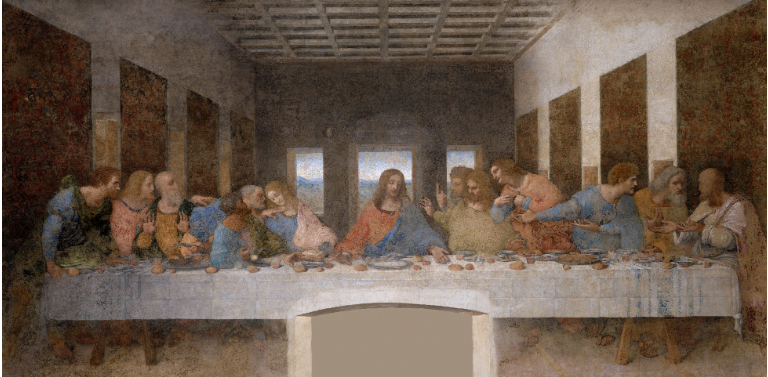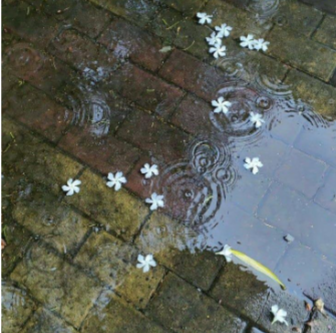Liberating More Space in The Library of Our Minds
- Kiara Aggarwal
- May 1, 2025
- 4 min read
By Irintsoa Rakotomamonjy
There was once a library where anyone could shelve anything they pleased, including love
letters next to instruction manuals, or showbiz magazines between epic poems. At first, it was
thrilling to the heart, pleasing to the eyes. Aesthetic, as most would say. But when people
came to actually search for meaning and depth, they only found noise.
I wonder sometimes if our minds are becoming the same: a cluttered aisle where true
knowledge gets lost between half-remembered TikToks, outraged tweets, that one Pinterest
quote and clickbait headlines. And they keep on piling up. If the foundation of thought is
made up of what we choose to consume, how carefully have we been choosing? What kind of
world are we crafting from these scattered pieces?

Brain rotted from endless spectacle
We now live in a world where visibility often matters more than understanding. Starting a
trend of AI arts mimicking other artists’ work, a viral clip of a political leader asking another
why he doesn’t wear a suit, gathering famous women on an 11-minute commercial space
flight, a tragedy reduced to a trending hashtag – it has come to a point where the spectacle
has replaced substance. Algorithms reward outrage and virality, not accuracy and nuance.
As we scroll through our feeds, our brains adapt to the rhythm of quick consumption.
Although it could fleetingly urge us to look deeper, this rhythm could also dull our capacity
for critical thinking, making us conditioned to value immediacy over inquiry. We stop
questioning beyond our feed. The discomfort of complexity, where our desire for truth lays,
is replaced by the pleasure of confirmation.
In Amusing Ourselves to Death, Neil Postman warned that when information is delivered
primarily through entertainment-driven media, our capacity for serious thought collapses. He
argued that television (and now the other digital forms) turns content into a form of
amusement, when when dealing with war, death or politics. Now, if it’s not in the short-span
captioned videos that we’re used to see, the brain easily loses focus, hence disregarding
meaning.
Poisoned food that leads to a weakened mind
In the IB curriculum, we have a class called Theory of Knowledge (TOK), where we aim to
explore how we know what we know. We go through different areas of knowledge, the
teacher constantly reminding, “Nobody’s right or wrong.” Yet, in my class of twenty-three
students, only three actively spoke. The rest of us sat in silence. Was it the fear of being
judged? The inability to reason out loud? Or perhaps the discomfort of not knowing what is
true, or worse, of suspecting that we never really knew.
Epistemic anxiety, that is.
As we absorb content and the noise grows louder than our capacity to discern, we begin to
outsource our beliefs, adopting ideas not because they are deeply understood, but because
they are familiar, popular, easy to digest. And in doing so, we stop curating what we consume
and begin to be shaped by it. Later, when you step out of that echo chamber, where you’re in
an intellectual conversation, you start to be conscious that your knowledge is incomplete and
begin to doubt your own understanding.
It’s like getting food poisoning from a food that looks good – you don’t realize the harm until
nausea sets in. Ideas can be consumed too quickly, too uncritically. And when the mind
ingests too much without filtering, the sickness isn’t in the body, but in our ability to think
clearly. When you’re sick, you feel weakened. But you do not have to stay sick. It starts with a
change in your lifestyle.
The new generation should pick up books again
Take these iPads off children’s hands and replace it with a book. Instead of being hypnotised
by the colourful flashes of screens, train young minds to reflect before react through the
decoding of symbols, formation of mental images and construction of meaning word by
word. It’s not AI, TikTok, or Cocomelon that will shape tomorrow’s leaders – it’s the seeds
we plant now. That is the encouragement to question, to create rather than consume, to solve
problems with clarity rather than shortcuts.
As Postman stated, “the medium is the metaphor,” meaning that the form in which we
consume information shapes how we interpret it, and ultimately, how we think. Then, our
actions reflect those same qualities as our thoughts. We have to remember that understanding
is not something handed to us – it’s something we construct. If we are to build a mature
society, let us place a firm foundation rooted in education.
Let’s reorganize our shelves by choosing more deliberately what we place on it.



Comments